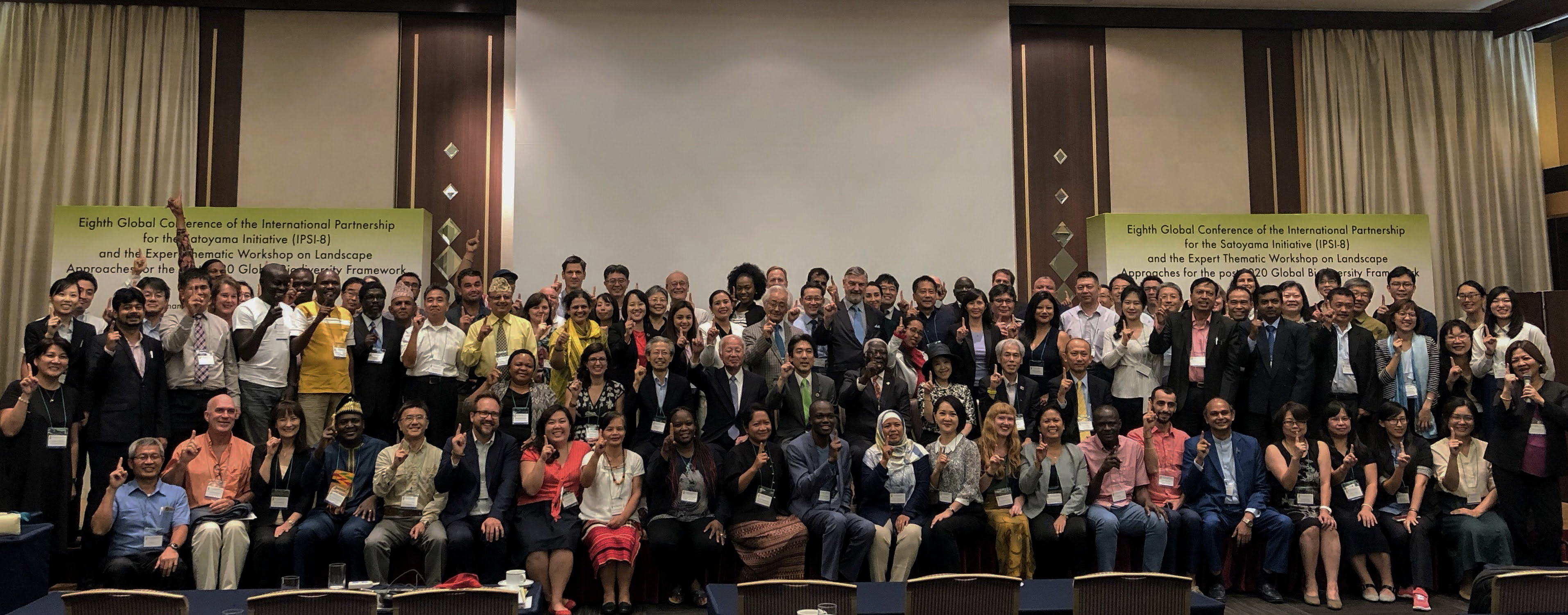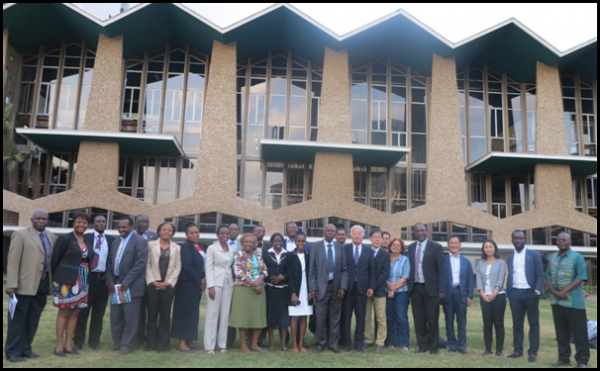The United Nations University Institute for the Advanced Study of Sustainability (UNU-IAS), along with the University of Tokyo, The University of Nairobi and Kenyatta University, co-organized a side event at the Sixth Tokyo International Conference on African Development (TICAD VI) on 25 August 2016, on “Enhancing Resilience against Climate and Ecosystem Changes in Sub-Saharan Africa through Utilizing Indigenous and Local Knowledge”, in Nairobi, Kenya. The side event featured speakers and participants from UNU, The University of Tokyo, University of Ghana, University for Development Studies (Ghana), UNESCO Man and Biosphere Programme and World Agroforestry Centre (ICRAF), who shared and discussed programmes, research findings on biodiversity, ecosystem and climate change as well as best practices which combines both indigenous and local knowledge and modern science and technologies for enhancing the resilience of Africa’s diverse and vulnerable landscapes.
In opening the event, Prof. Kazuhiko Takeuchi, Director of the Integrated Research System for Sustainability Science (IR3S) at the University of Tokyo, stated that the event offered a platform for relevant stakeholders to share ideas and learn from the outputs of research projects with a common goal of finding solutions to the multiple and closely-related challenges facing sustainable development across Africa. Citing examples from an ongoing “Enhancing Resilience to Climate and Ecosystem Changes in Semi-Arid Africa (CECAR-Africa)” project in semi-arid Ghana, Prof. Takeuchi pointed out that the newly developed resilience enhancement framework, also known as the ‘Ghana Model’ provides a prime example of a demand-led research that has generated empirical outcomes to drive appropriate policies and actions by governments and development practitioners. He stressed the potential of the ‘Ghana Model’ to be up-scaled and encouraged researchers to replicate in similar ecological regions within Sub-Saharan Africa.
Dr. Noeline Raondry Rakotoarisoa from the UNESCO Man and Biosphere Programme noted that outcomes of efforts towards promoting resilience in socio-ecological systems against climate, ecosystem and socioeconomic changes need to be sustained and called for the need to actively engage local stakeholders in the design, planning, implementation and monitoring of intervention projects. Other presentations by event speakers highlighted and discussed case study research and intervention projects in Tanzania, Swaziland, Ghana and Kenya aimed at identifying and promoting sustainable remedial measures to improve livelihoods systems, address food insecurity and safeguard vulnerable ecosystems.
The event also provided the opportunity for the presentation of the new publication titled ‘Socio-ecological Production Landscapes and Seascapes (SEPLS) in Africa’, published by UNU-IAS in collaboration with the University of Tokyo’s Integrated Research System for Sustainability Science (IR3S/UTIAS). The publication was developed building on the Satoyama Initiative Regional Workshop in Africa, held in Accra, Ghana in August 2015, and presents readers with case studies from six African countries highlighting issues relating to the status of, trends in, and threats facing SEPLS and what needs to be done for their revitalization, conservation and sustainable management across Africa. The publication is available for download on the IPSI website here.
In his summary remarks, Dr. Osamu Saito, Academic Programme Director at the United Nations University, emphasized that promoting local adaptive capacity and livelihood diversification, good governance systems are critical elements towards reducing vulnerability populations in Africa and promoting sustainable development in harmony with nature.





